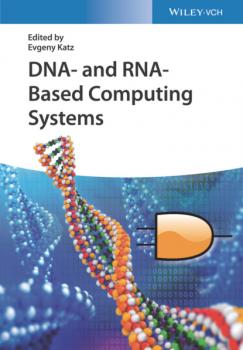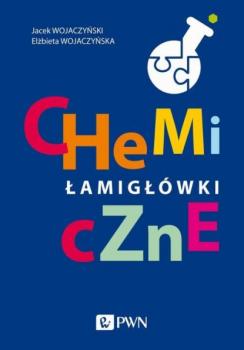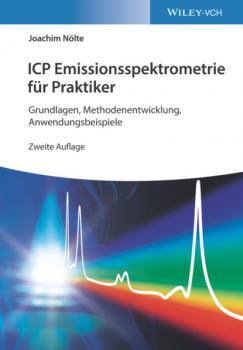Химия
Различные книги в жанре ХимияRemote C-H Bond Functionalizations
A guide to contemporary advancements in the field of distal C—H functionalization Remote C—H Bond Functionalizations provides a comprehensive overview on the most recent developments in the field of distal C—H functionalization. The text explores how distal C—H functionalization can be applied in various pharmaceutical and agrochemical industries. With contributions from a noted panel of experts on the topic, the book offers a coherent and comprehensive discussion about different strategies. The contributors cover a broad range of topics including C—H functionalization of palladium/norbornene catalysis, ruthenium-catalyzed remote functionalization, the non-directed distal C(sp2)—H, functionalization, transition metal catalyzed distal para-selective C—H functionalization, and much more. The book also includes information on effective strategies as well as the engineering of templates. Throughout the book, the authors lay the foundations for future research. This important book: Contains the most recent research on one of the most important topics in organic synthesis Provides a broad overview on contemporary advancements in the field of distal C—H functionalization Includes deep insights into distal C—H functionalizations Offers information on applications in various industries Written for organic chemists, chemists working with organometallics, and industrial chemists, Remote C—H Bond Functionalizations presents a systematic compilation of the field.
Диалогика стилей в науке. Химия. Методические материалы по изучению истории химии в 8–10 классах
В пособии даны представления о диалогике стилей с точки зрения истории и методологии науки, об основных диалогических подходах гуманистического образования, даются педагогические рекомендации по организации учебного процесса в русле диалогики стилей, а также приводятся тексты по истории трёх крупных дискуссий в химии, которые могут быть использованы в качестве содержательной и методической основы занятий с учащимися.
Organofluorine Chemistry
By presenting novel methods for the efficient preparation of fluorinated compounds and their application in pharmaceutical and agrochemical chemistry as well as medicine, this is a valuable source of information for all researchers in academia and industry!
DNA- and RNA-Based Computing Systems
Discover the science of biocomputing with this comprehensive and forward-looking new resource DNA- and RNA-Based Computing Systems delivers an authoritative overview of DNA- and RNA-based biocomputing systems that touches on cutting-edge advancements in computer science, biotechnology, nanotechnology, and materials science. Accomplished researcher, academic, and author Evgeny Katz offers readers an examination of the intersection of computational, chemical, materials, and engineering aspects of biomolecular information processing. A perfect companion to the recently published Enzyme-Based Computing by the same editor, the book is an authoritative reference for those who hope to better understand DNA- and RNA-based logic gates, multi-component logic networks, combinatorial calculators, and related computational systems that have recently been developed for use in biocomputing devices. DNA- and RNA-Based Computing Systems summarizes the latest research efforts in this rapidly evolving field and points to possible future research foci. Along with an examination of potential applications in biosensing and bioactuation, particularly in the field of biomedicine, the book also includes topics like: A thorough introduction to the fields of DNA and RNA computing, including DNA/enzyme circuits A description of DNA logic gates, switches and circuits, and how to program them An introduction to photonic logic using DNA and RNA The development and applications of DNA computing for use in databases and robotics Perfect for biochemists, biotechnologists, materials scientists, and bioengineers, DNA- and RNA-Based Computing Systems also belongs on the bookshelves of computer technologists and electrical engineers who seek to improve their understanding of biomolecular information processing. Senior undergraduate students and graduate students in biochemistry, materials science, and computer science will also benefit from this book.
Обоняние. Увлекательное погружение в науку о запахах
Почему одни запахи кажутся нам чудесными, а другие вызывают отвращение? Есть ли на свете запахи, которые всегда воспринимаются как хорошие или дурные всеми представителями нашего вида – независимо от культуры, прошлого опыта и физиологических различий? Можно ли создать молекулу с каким-то определенным ароматом? А составить ольфакторную карту?.. И кстати, какую роль играют запахи в жизни разных насекомых? Паоло Пелоси, профессор химии, изучающий обоняние, автор более 150 научных публикаций, ответит на все эти и многие другие вопросы, познакомит с новейшими достижениями науки о запахах и расскажет об удивительных механизмах обоняния, которыми эволюция наделила всевозможных живых существ – включая человека. «Мы часто не обращаем внимания на запахи и почти всегда их недооцениваем. Между тем они тайно влияют на наше настроение, предопределяют выбор и вообще делают жизнь куда более приятной. Наш нос непрерывно бомбардируют разнообразные молекулы, даже если мы ничего не нюхаем специально. Агрессивные запахи нас отталкивают и нередко спасают от потенциально опасных ситуаций, приятные кажутся неодолимо привлекательными, и зачастую все это происходит исподволь, так, что мы ничего не осознаем. Ароматы вызывают эмоции и внезапно возвращают к жизни воспоминания, давно спрятанные в глубинах памяти» (Паоло Пелоси). В формате PDF A4 сохранён издательский дизайн.
ICP Emissionsspektrometrie für Praktiker
Die Neuauflage dieser beliebten, leicht verständlichen und anwenderorientierten Einführung in die ICP-Emissionspektrometrie umfaßt die praxisrelevanten Grundlagen, gerätetechnische Informationen, eine Anleitung zur Methodenentwicklung sowie viele praktische Anwendungsbeispiele.









